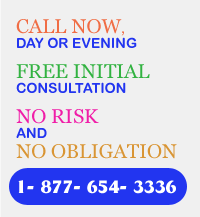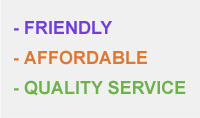| Trademark Application Tips, and Some Ways to Avoid Pitfalls |
||
Filing a trademark application? That may seem easy, but mistakes can be costly later, during the examination phase. Here are a few helpful tips, and a few pitfalls to avoid. After a trademark application is filed, the U.S. Trademark Office conducts an examination of the application. For example, if there is both an objection and a refusal to register the mark, then a response will be necessary to meet the objection and to overcome the refusal to register. This happens frequently, and an experienced trademark attorney will likely know just what to do when writing the response. In my experience, it pays to respond to every office action. Many issues are within the range of discretion of the trademark examining attorney, and good legal arguments in support of the trademark may well be persuasive. Some firms charge substantial sums of money to prepare responses, and other firms might charge much less - therefore it may pay to shop around. A helpful tip: before filing a trademark application, find a cost effective trademark attorney. It is wise to assume things may not always go smoothly or quickly. Another tip: select the best type of trademark application. There are two types: intent-to-use applications, and actual use applications. Both cost the same to file. The intent-to-use application can be filed long before actual use occurs, but there is a later government fee when completing the intent-to-use application. The trade off is that completing the intent-to-use application requires a statement of use or allegation of use, together with a specimen of use and an additional government fee. If an actual use application can be filed based on actual use in interstate commerce, then it will save money to do so. It pays to know what types of problems come up during the examination phase. Some problems that may come up: the trademark examiner may raise objections due to a similar prior mark, may object to the mark based on descriptiveness or misdecriptiveness of the mark, may object to the mark as having an improper geographical reference, and may object to the listing of the goods/services. There are other possible grounds of objection too. In light of the above, another cost saving tip is this: have an experienced trademark attorney look at the mark prior to filing, just to see if there is something that jumps out. You probably wouldn't want to spend money to file an application if it was certain to fail. Here, too, it often pays to shop around. Some attorneys would charge quite a bit just to look at the mark, whereas others might take an interest and provide helpful comments at little or no additional charge. Trademark owners have reported a wide range of fees, some fees being reasonably low and some fees being unexpectedly high. Another tip: it pays to do a trademark search prior to filing a trademark application. I would certainly recommend that you ask your trademark professional to perform at least an informal online search of the U.S. Trademark Office records. Some may charge for this, while others may include it at no extra charge as part of the cost of filing a new trademark application. It therefore pays to ask. Formal trademark searches are also available, and other types of trademark search exist, depending on need. If there is a prior trademark that is similar to the trademark in question, such prior mark can be a real obstacle if it is in the same or similar field of goods/services as the mark in question. If the similar mark is not in the same field of goods/services, it may or may not be relevant depending on various factors such as how close their goods/services are, and their strength or uniqueness. Tip: An experienced trademark attorney may be able to provide a good guesstimate of the chances of overcoming such prior marks, but cannot predict the outcome with certainty. Pitfall to avoid: downstream costs. Don't assume anything: ask your trademark professional for typical costs of responding to office actions. For an intent-to-use application, ask for costs of filiing a specimen, a statement of use, and/or an allegation of use. Have a really valuable trademark? Perhaps it is really strong, original, or clever. Then, you may well want to ask the costs for filing a trademark appeal. Yes, even before filing the application. Such an appeal typically includes legal citations, and therefore may or may not be costly. You might want to ask for typical appeal costs, even before you file a trademark application. Some trademark professionals might not handle appeals – this too would be interesting to know in advance. And, shop around – it never hurts to know the range of costs. A final tip: some firms are more helpful than others. Ask questions up front. If the trademark professional is not helpful or is not accessible to you, consider that factor before moving forward. The author is a patent attorney with over 28 years experience in patents and trademarks. For further information, please email at IP1lwyr@gmail.com, or call at 877-654-3336. |
Michael J. Foycik Jr., Esq.
US & INTERNATIONAL PATENT, TRADEMARK & COPYRIGHT SERVICES
PATENT ATTORNEY, 30 +YEAR EXPERIENCE AND FORMER PATENT EXAMINER
Home | About Us | Services | Fees | Resources | Articles | Contact
U.S. Patent | U.S. Trademark | U.S. Copyright | Support for International Client
Client Testimonials | PATENTS OBTAINED | TRADEMARKS OBTAINED | business center
Patent Application Quote Form | Trademark Application Quote Form | Copyright Application Quote Form | Free Initial Contact Form
© 2008-2017 InternationalParentService.com | All Right Reserved | Disclaimer
 Follow @PatentOffice
Follow @PatentOffice
U.S. Patent | U.S. Trademark | U.S. Copyright | Support for International Client
Client Testimonials | PATENTS OBTAINED | TRADEMARKS OBTAINED | business center
Patent Application Quote Form | Trademark Application Quote Form | Copyright Application Quote Form | Free Initial Contact Form
© 2008-2017 InternationalParentService.com | All Right Reserved | Disclaimer


